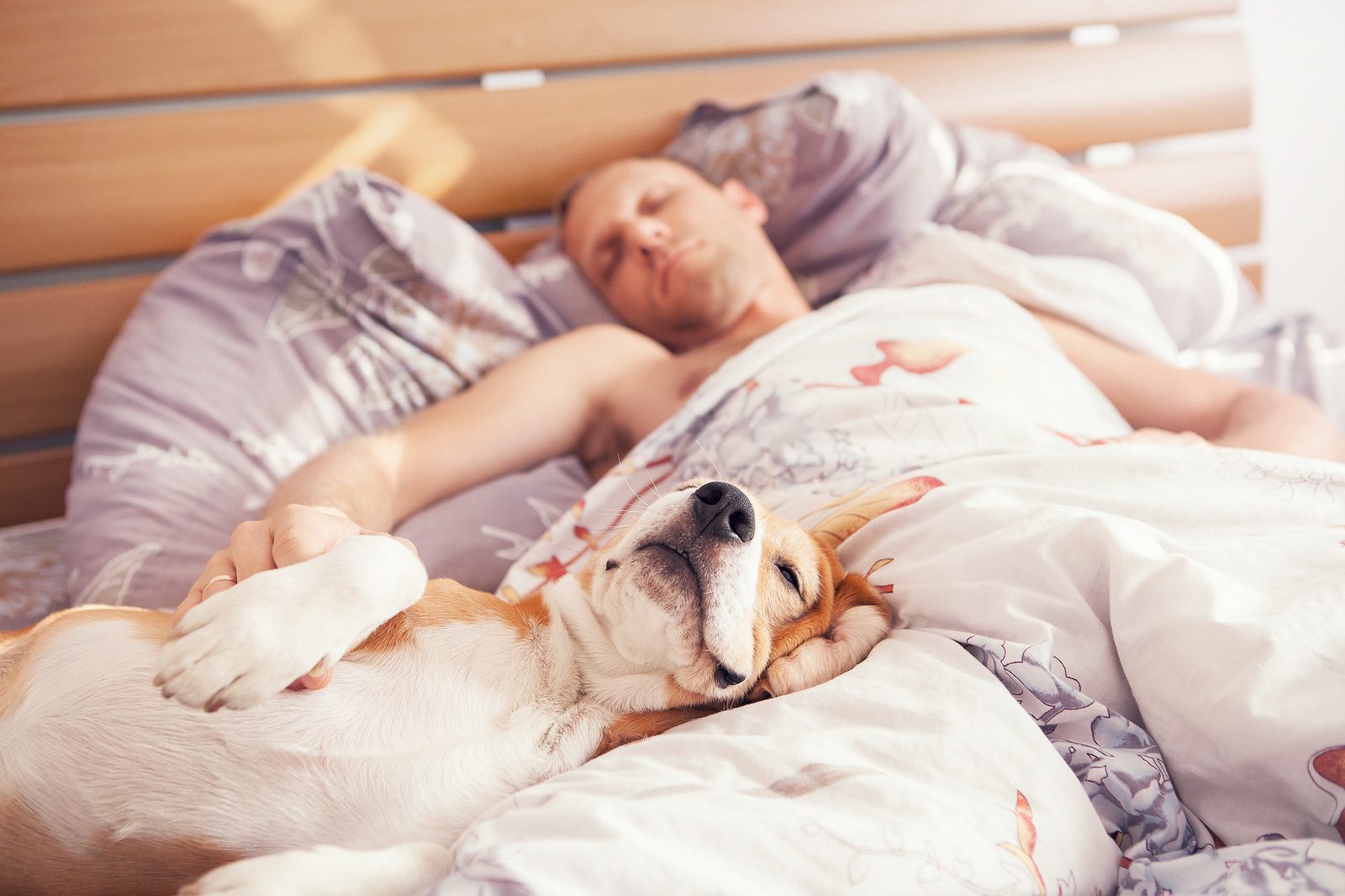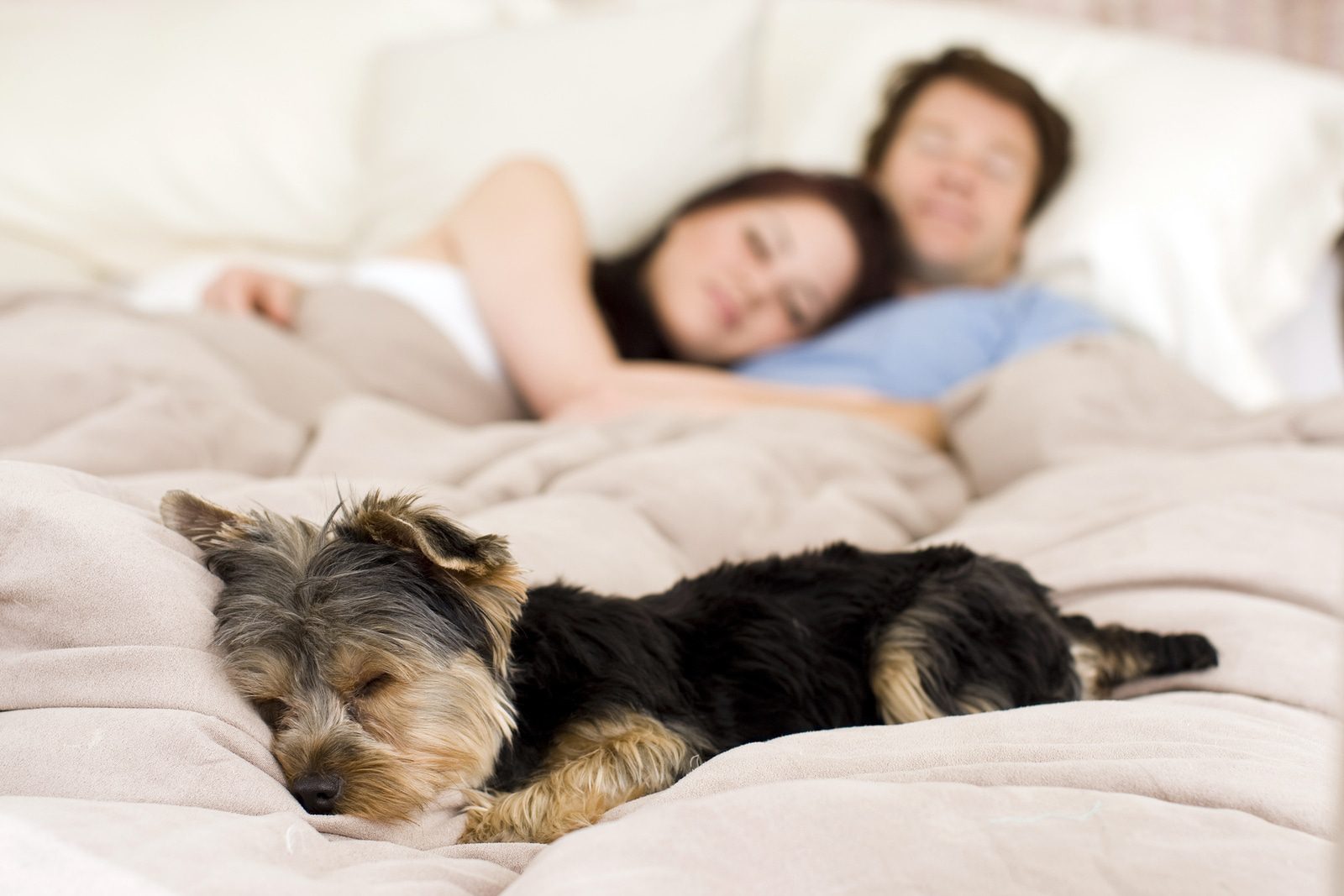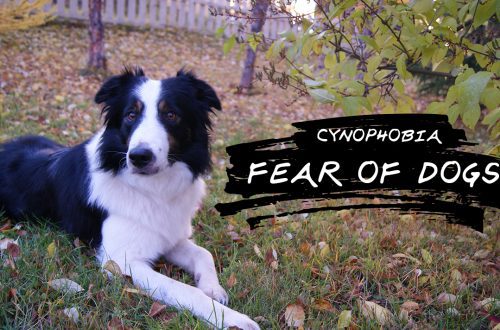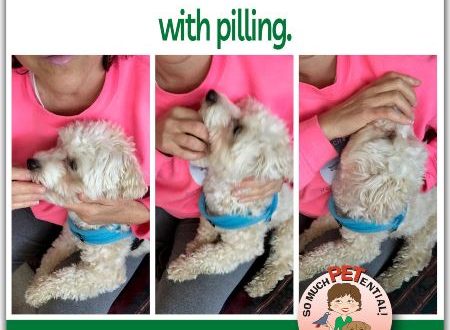
Should you let your dog sleep in your bed?
It’s not easy to decide whether to let your dog sleep in the same bed with you. On the one hand, you don’t want her to feel lonely at night. But on the other hand, you don’t want to spoil her. What is a loving owner to do? To start, relax. You are not going to spoil your own dog. But whether you spoil your sleep is another matter. Evaluate several factors to decide whether to sleep with a pet in the same bed.
Question of choice
 There are no hard and fast rules about whether or not to let a dog into its own bed. Some trainers, who adhere to outdated notions of dominance, do not approve of a pet sleeping in the owner’s bed, because it allegedly puts the animal in a higher place in the “pack” in relation to the owner. However, according to the Whole Dog Journal, these assumptions have been refuted by the results of behavioral studies. In the end, whether or not you should let the animal in your own bed depends on your desire and the willingness of the pet to accept your decision.
There are no hard and fast rules about whether or not to let a dog into its own bed. Some trainers, who adhere to outdated notions of dominance, do not approve of a pet sleeping in the owner’s bed, because it allegedly puts the animal in a higher place in the “pack” in relation to the owner. However, according to the Whole Dog Journal, these assumptions have been refuted by the results of behavioral studies. In the end, whether or not you should let the animal in your own bed depends on your desire and the willingness of the pet to accept your decision.
It’s up to you to decide if you’re comfortable sleeping with your pet, but to get access to your bed, your furry friend must meet a few basic criteria, suggests Vetstreet.
- He sleeps through the night without going to the bathroom.
- He sleeps in his place without howling and whining, aimed at getting you to let him into your bed.
- It is not so small that you can accidentally crush it in your sleep, and not so large that you inadvertently harm you.
Disadvantages of co-sleeping with a dog
While it’s nice to fall asleep with a warm puppy, there are some challenges.
- A pet can disturb your sleep. Dogs tend to have restless sleep and may snore, move their paws quickly, and roll around. Your pet may wake up in the middle of the night to scratch, stretch, or burrow into blankets to find a comfortable position. Even those dogs that are able to sleep through the night sometimes wake up to go around the house or drink if possible. Also, dogs have a tendency to take places on the bed where you want to stretch. For example, you will stretch your legs and accidentally kick a pet, or roll over to get into a more comfortable position, and the dog will already be lying there.
- Your dog can make your allergies worse: Even if you haven’t had an allergic reaction to pet skin, dogs often bring in new allergens such as grass and pollen. If you suffer from allergies, then letting your dog sleep in your own bedroom, and even more so in your bed, is a bad idea. Another similar problem is dog hair (there is no such thing as a “hypoallergenic dog”). You might not enjoy waking up with dog hair in your mouth or washing your bedding every day. Keep all of these concerns in mind when deciding to let your pet into your bed.

- A dog in bed can harm your marriage. The website BarkPost warns that a pet sleeping between partners can disrupt the special intimacy that strengthens marriage and relationships. In addition, some dogs show jealousy and begin to “protect” one partner from another, according to the Whole Dog Journal. As soon as your significant other or dog has started to show signs of jealousy, it’s time to deprive your pet of its sleeping privileges.
- The dog may become aggressive. Some dogs begin to perceive the bed as their own territory and show signs of protecting resources or asserting status, ceasing to obey the owner. If this happens, you can not let the dog go back to bed and wean him from being there until he begins to cope with his own aggression.
- Dog saliva. It’s no secret that some dogs drool and their owners wake up with wet sheets and pillows. If this is your case, it may be better for your pet to nestle next to your bed rather than in it. In addition, dogs that have unlimited access to the owner’s bed love to take a nap on it even in his absence. Perhaps there is nothing to worry about, but only until one day after the rain you find traces of wet paws on the bedding.
- Bed heating. During the cold winter months, it may be an advantage that dogs give off heat when they sleep, raising the temperature of your bed (especially large breeds). If you do not like to sleep in a hot bed, then co-sleeping with a pet is not for you.
- Sleep on top. As a general rule, if your dog is having difficulty getting into and out of bed on his own, you should not invite him into bed. For small dogs that have to jump, it is better to place a stand near the bed. If you have to put the dog to bed yourself, it is better not to do this at all, because when jumping out of bed, he may be injured.
There are certainly benefits to co-sleeping with a pet. The dog will help you relax and you will strengthen your relationship. It is up to you to decide what is more in this matter: pluses or minuses. And you can find a happy medium by placing a pet bed next to your own bed, then it will be nearby without disturbing your sleep. Whatever you decide, remember that there is no right or wrong decision – the choice is yours.





